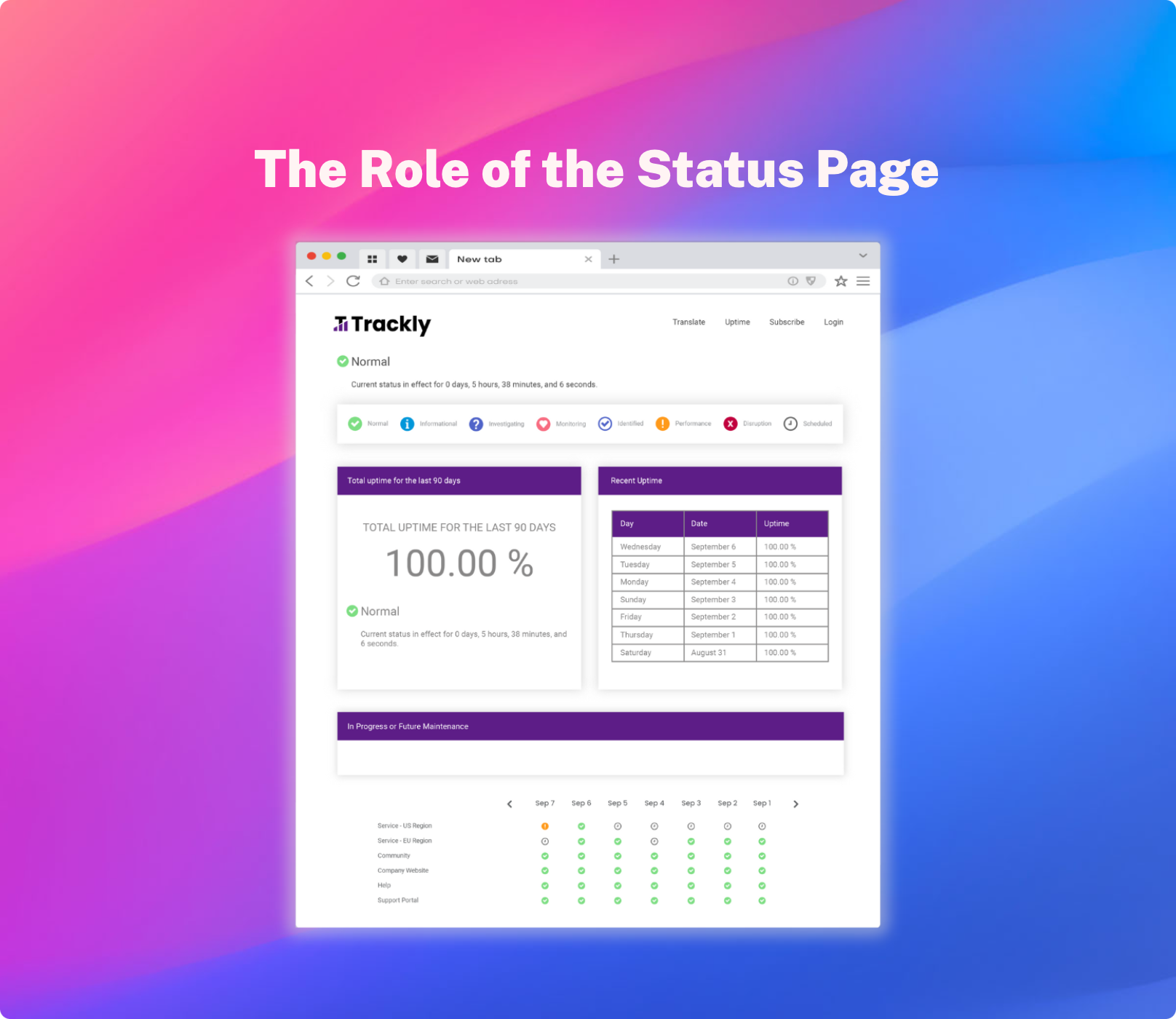As with New Relic, Pingdom can transmit uptime and other performance data to hosted status pages automatically and translate that data into terms relevant to your customers. This is achieved through an integration with StatusCast. Just as Pingdom sends you (or your IT team) a notification, StatusCast sends a notification to those customers impacted by the application outage (or whatever other performance issue there may be). In this manner,
StatusCast helps you get ahead of the wave of confusion and frustration from customers as a result of unexpected application downtime.
Application Outages vs. Scheduled Maintenance
Much of customer confusion and frustration can be avoided by simply doing a better job at setting expectations.
A hosted status page can serve as the go-to means for customers to find out when your application will be unavailable due to scheduled maintenance or to periodic testing for things like system stress and disaster recovery.
Tailoring Notifications from Your Hosted Status Page
As an additional benefit, StatusCast is designed to be simple enough that non-technical staff can use it. Once your DevOps or IT team clarifies what audiences are impacted by what triggers in Pingdom (or whatever APM you’re using), your Marketing team can take care of actually crafting a message that your average end user can understand, that appropriately sets expectations with your end user customers, and that includes other relevant information you’d want those customers to be aware of. This empowers Marketing to do what they do best.
Image courtesy of the Pingdom blog.





